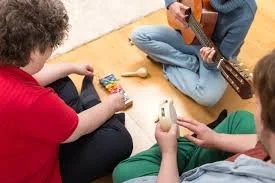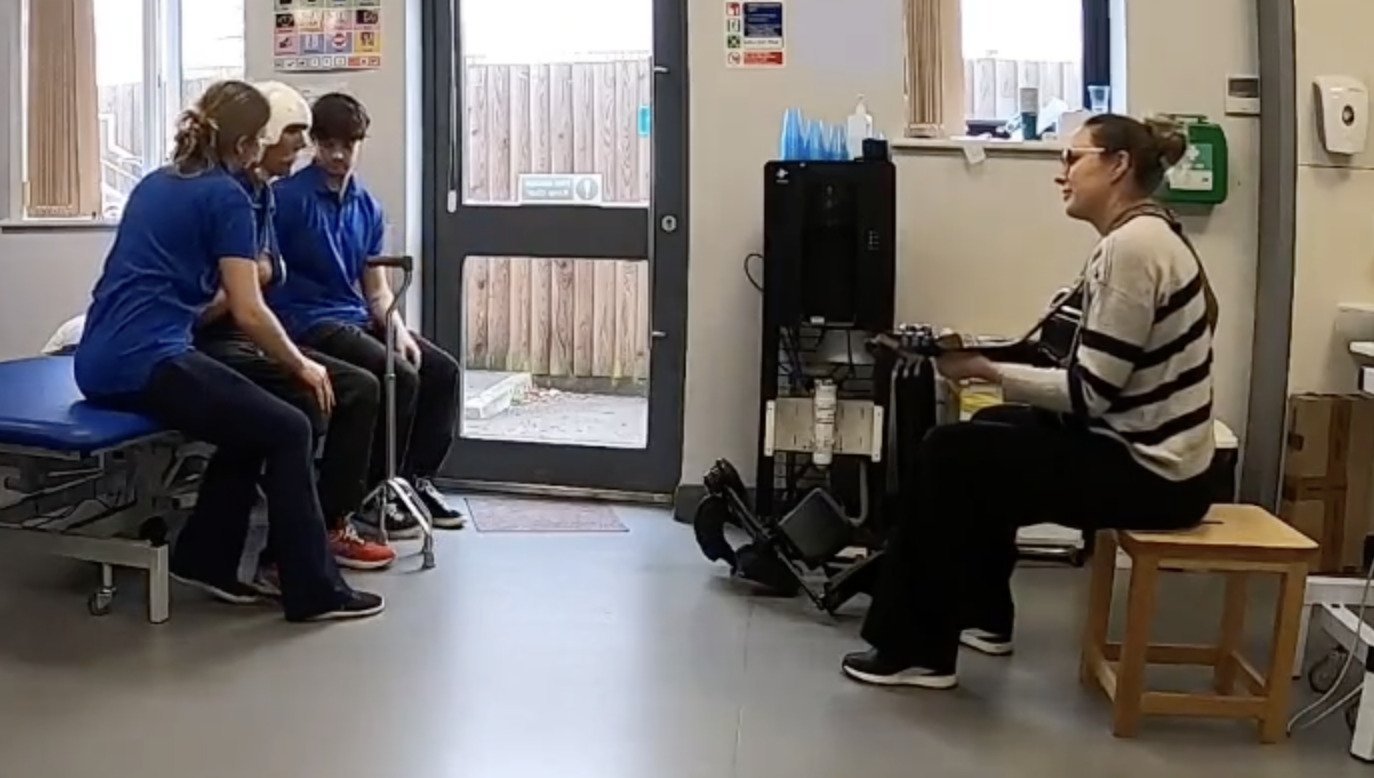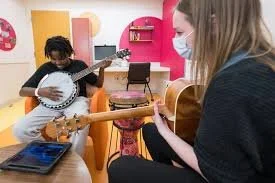Common Questions about Music Therapy (and what really happens in a session…)
We all use music therapeutically - whether we’re aware of it or not. Perhaps you choose high tempo music to motivate your workout, relaxing music to accompany your bath or maybe you listen to rock or metal when you’re on an ‘angry walk’ (just me then?).
But lots of people ask me what music therapy is, as a clinical profession. What we do, who can benefit and how it all works. Here are some answers to the more common questions I’m asked about music therapy:
What exactly is Music Therapy?
Music therapy is a broad field that can be defined in a number of ways (depending on who you speak to!) but the British Association for Music Therapy, defines it as follows:
Music Therapy is an established psychological clinical intervention, delivered by HCPC registered music therapists to help people whose lives have been affected by injury, illness or disability through supporting their psychological, emotional, cognitive, physical, communicative and social needs.
Essentially, it’s a clinical practice that uses music to help people achieve specific goals related to physical, emotional, cognitive or social wellbeing. It’s not about learning to play an instrument (although that can be a welcome bonus!) but about using music as a tool for expression, communication and change.
What happens in a session?
Every session is different as the therapy is tailored to the individual (or group) but the one common and important factor is that sessions always take place in a safe, supportive space, where there’s no right or wrong way to respond.
They can typically last anywhere from 20 minutes to an hour and can be situated in an assigned therapy room, community centre, school, hospital, care home or other suitable, private space - depending on the client(s).
Some examples of what might happen in a session:
Singing or vocal exercises to support speech and communication
Improvising on a selection of instruments to express feelings that are difficult to articulate
Playing instruments to develop movement or coordination where there may be a physical impairment
Listening to music to evoke memories or to reduce anxiety
Songwriting to help with the processing of emotions
Playlist creation, as a resource for outside of sessions
Using music alongside another therapy (e.g. physiotherapy, to improve walking or gait)
Using rhythm, percussion or song in a group, to encourage social interaction and connection
Using music as a stimulus for simply talking to a therapist
Do I need to be musical to have music therapy?
Absolutely not - let the music therapist worry about that! You don’t need any musical experience or knowledge to benefit. Music therapy is about how you respond, perceive or wish to use music and sound with a trained therapist - not how well you can create it.
Who can benefit?
Music therapy supports people of all ages - from babies to older adults - and can help with a wide range of needs but essentially, anyone can benefit. In my own practice, I work with people recovering from stroke or brain injury, as well as those living with mental health challenges, dementia, autism or learning difficulties.
Group music therapy can be deeply supportive in sharing experiences - for example, for women in the early stages of motherhood; or in a more targeted approach, where a group of people may have been recently diagnosed with an illness such as Parkinson’s Disease.
Is there evidence that it works?
Yes, there is an abundance and a growing body of research highlighting how music therapy can improve mood, reduce anxiety, support communication and stimulate brain function after injury. Music therapy is gaining increased exposure in the press for its effects: click here for a BBC podcast about music therapy and mental health.
If you favour a neuroscience stance, Neurologic Music Therapy is a branch of music therapy that focuses on how music can directly support brain rehabilitation.
How can I access music therapy?
Music therapy can be accessed privately (through private practices such as mine) through some NHS and community services or as part of specialist organisations and projects.
If you’re interested in finding out more, you can contact me by clicking here, to discuss whether music therapy might be suitable for you, someone you know, or for your organisation.
Final thoughts…
Music therapy is for everyone - not just musicians. Whether you’re recovering from an injury, learning to cope with an illness, navigating emotional challenges or simply looking for new ways to connect, music has a way of reaching us when words fall short.
About the author:
Sophie Barford, MA (Music Therapy), NMT™, is an HCPC-registered Neurologic Music Therapist based in Wiltshire. She works with clients of all ages across neurorehabilitation, mental health, and wellbeing settings, and co-directs Music and Motherhood CIC.




